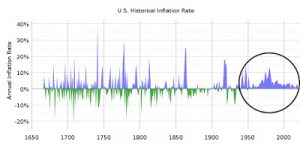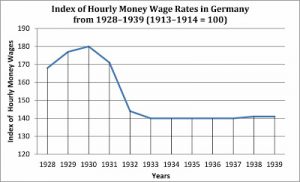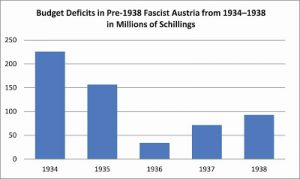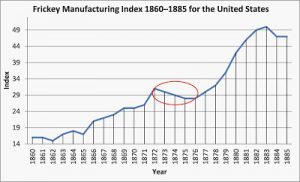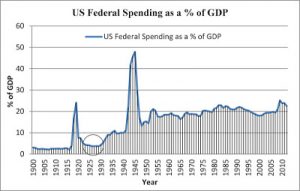This is a very important point since one criticism of my last post is the view that “only taxes levied by the state and the need to pay those taxes in the state-issued fiat money drive the demand for, and value of, that fiat money and its use as a general medium of exchange in modern nations” is not actually held by L. Randall Wray, the most prominent academic advocate of MMT. So it turns out that, on this issue, I have to eat some humble pie!Rather, the view I forumlated seems to be held more by internet supporters of MMT, and was the way Per Bylund interpretated comments of Stephanie Kelton in their Twitter debate on MMT (Bylund 2023: 148–152).However, it seems that L. Randall Wray has a different view, and Per Bylund was not correct in his interpretation of MMT.I quote from L. Randall
Read More »Articles by Lord Keynes
Per Bylund’s “Is it Money because it is redeemed in Tax Payments?”: A Post Keynesian Response
July 23, 2024The Austrian economist Per Bylund has recently written this challenge to advocates of MMT/Neochartalism:Bylund, Per. 2023. “Is it Money because it is redeemed in Tax Payments?: A Response to Kelton and Wray,” Quarterly Journal of Austrian Economics 25.4: 147–165. In this article, in reply to an argument by the MMT economist Stephanie Kelton, Bylund argues that fiat money cannot have value only because it is used to pay government taxes:“If the [sc. fiat] currency is valued because (and only because) it is needed to pay the taxes owed to the government, then this does not also explain why actors would value it much beyond their tax liabilities. If the government requires me to pay taxes of $100,000 in its currency in year X, I have no reason to demand that currency beyond the $100,000 I
Read More »Radhika Desai on the Labour Theory of Value: A Refutation
July 20, 2024I was challenged by a person in the comments section to engage with the work of the Marxist Radhika Desai.So, after looking over a list of Radhika Desai’s articles and books, I found this chapter which partly deals with Marx’s Labour Theory of Value (LTV):Desai, Radhika. 2016. “The Value of History and the History of Value,” in T. Subasat (ed.), The Great Financial Meltdown: Systemic, Conjunctural or Policy Created?. Edward Elgar Publishing, Inc., Northampton, MA. 136–158. Marx’s Labour Theory of Value (LTV) is at the heart of his economics, so establishing what interpretation of the LTV that Radhika Desai supports is a very good way to assess how properly she understands Marx. First of all, Desai appears to argue that the marginal revolution of the 1870s that gave birth to Neoclassical
Read More »Per Bylund versus Carl Menger on Taxes driving the Value of Money
July 20, 2024The Austrian economist Per Bylund has recently written this challenge to advocates of MMT/Neochartalism:Bylund, Per. 2023. “Is it Money because it is redeemed in Tax Payments?: A Response to Kelton and Wray,” Quarterly Journal of Austrian Economics 25.4: 147–165. Bylund rejects the view that fiat money only has value and is used as a general medium of exchange because governments demand it as the legal means of payment for state taxes, and demands that advocates of Modern Monetary Theory (MMT) respond to his critique.Now certainly the recent view within MMT that only taxes cause state fiat money to have value and be the general medium of exchange (and nothing else) is too extreme an idea, and has been rejected even by some Post Keynesian economists (e.g., Rochon and Vernengo 2003), there
Read More »Marx’s Capital, Volume 3, Chapter 10: A Critical Summary
July 15, 2024Chapter 10 of volume 3 of Capital is called “Equalization of the General Rate of Profit through Competition. Market Prices and Market Values. Surplus Profit,” and it discusses the equalization of profit rate and the formation of prices of production. Brewer (1984: 139) argues that the chapter in the manuscript used by Engels was in the form of a “a preliminary draft rather than a polished final version,” which is certainly evident when you read the chapter. Marx begins by noting that some industries have a composition of capital equal to, or close to, the average composition of capital in the economy as a whole (the total social capital). In these industries, “the price of production of the produced commodities coincides exactly or approximately with their [sc. labour] values as expressed
Read More »Marx’s Labour Theory of Value: A Concise Refutation
July 10, 2024As an advocate of Post Keynesian economics, I reject Marx’s economic theories in the three volumes of Capital because they are founded on the false Labour Theory of Value (LTV). Here is a concise case against the LTV, although I limit myself only to some of the most serious criticisms of the theory: (1) Marx’s Argument for the LTV is Logically Flawed: Marx does not prove it is a real Empirically-Relevant Concept
In chapter 1, volume 1 of Capital, Marx assumes that, when one commodity exchanges for another, this entails an equality: “Let us take two commodities, e. g., corn and iron. The proportions in which they are exchangeable … can always be represented by an equation in which a given quantity of corn is equated to some quantity of iron: e. g., 1 quarter corn = x cwt. [hundredweight]
Paul Cockshott’s “Why Labour Theory of Value is Right”: A Refutation
July 10, 2024The Marxist Paul Cockshott presents his defence of the Labour Theory of Value in this video:[embedded content]It appears that Paul Cockshott defends the Labour Theory of Value (LTV) found in volume 1 of Capital, albeit in a grossly simplified way.He defines the LTV in three senses, as follows:(1) The average price of a good will be proportional to the average amount of labour used to make it;(2) The value added in an industry will thus be roughly proportional to the labour it uses.(3) Price quantities are thus the indirect representation of underlying quantities of human time. Unfortunately, this is not an accurate representation of Marx’s actual “law of value” in volume 1 of Capital, where Marx defended in his text a “law of value” in which homogeneous, socially-necessary labour time
Read More »Bibliography on Marx’s Law of the Falling Rate of Profit
August 14, 2021I present below a bibliography on Marx’s Law of the Falling Rate of Profit. The list is not meant to be exhaustive, but includes the most important or interesting discussions.In essence, the text of volume 3 of Capital was taken from the manuscripts of volume 3 from 1864–1865 which were in a draft and fragmentary form (Vollgraf and Jungnickel 2002: 68). Engels began editing volume 3 for publication around 1885 but it took him nearly 10 years before that volume was published in 1894 (Vollgraf and Jungnickel 2002: 40). In 1993, Marx’s main 1864–1865 manuscript for volume 3 of Capital which Engels used was published and allowed scholars to compare this with what Engels published in 1894 (Vollgraf and Jungnickel 2002: 36).Engels’ changes to Marx’s material on the Law of the Falling Rate of
Read More »Zachariah’s “Labour Value and Equalisation of Profit Rates”: A Critical Review
July 7, 2021D. Zachariah’s paper “Labour Value and Equalisation of Profit Rates: A Multi-Country Study” (Indian Development Review 4 [2006]: 1–20) seeks to prove Marx’s Labour Theory of Value (LTV) by examining empirical data on factor input costs and final prices of finished goods from 18 nations in a period from 1968 to 2000. Zachariah concludes that “market prices and labour value of industry outputs are highly correlated for a fairly broad sample of economies” (Zachariah 2006: 18), and that the idea of “prices of production” (used by Marx in volume 3 of Capital) is an inferior theory to the simple Labour Theory of Value in explaining prices, especially since Zachariah finds strong evidence against a tendency to equalisation of profit rates (Zachariah 2006: 18). In essence, Zachariah also
Read More »Academic Agent versus “Adam Friended” on Price Inflation and MMT
April 5, 2021Academic Agent has got into another row on MMT, but this time with someone called “Adam Friended.”In brief, “Adam Friended” responded to Academic Agent in the following video on the issue of MMT and price inflation:[embedded content]Academic Agent then produced this response on MMT here:[embedded content]Academic Agent is correct that Covid welfare payments and furlough schemes were not the fundamental drivers of inflation in some goods. It is also true that the Western world is far from full employment (though wage rises clearly can be a driver of price inflation through cost-based mark-up prices).Unfortunately, “Adam Friended” did not correctly describe the causes of the price inflation in certain goods at the moment, and worse still he does not himself properly understand MMT or Post
Read More »Reply to Academic Agent on Austrian Economics and Price Rigidity
February 5, 2021Academic Agent lost a bet to me on Twitter and was forced to respond to my post here on Austrian economics and the reality of relative price rigidity. He has now produced two videos in this debate.Here is Academic Agent’s first video response to my post:[embedded content]Before he uploaded the video, I predicted that his video would contain the following:(1) he would misrepresent the actual theories of Austrian economics;(2) he would attack straw-man misrepresentations of my post;(3) he would focus on minor arguments and weak evidence and largely ignore major arguments and strong evidence. These predictions are largely correct.First, Academic Agent misrepresents my argument and states that I think the word “rapidly” in relation to price flexibility means I think prices must change
Read More »Austrians and Full Employment
October 31, 2020In this video, the Austrian libertarian “Radical Liberation” claims that “full employment” is not a term used in Austrian economics:[embedded content]While it is true that Austrians rarely speak of “full employment” (which is a very low level of involuntary employment, and does not mean zero unemployment) as a policy goal, the claim that Austrians do not think in terms of the concept of “full employment” is actually rubbish, because Austrians just use expressions such as the “no involuntary unemployment,” “clearing of the labour market” or a “tendency to clearing of the labour market.”To see this, consider these passages from Austrian economists:(1) “Similarly, most economists would readily admit that keeping the price of any good above the amount that would clear the market will cause
Read More »Relative Price Rigidity and Austrian Economics
September 24, 2020The purpose of this post is to examine and provide a critique of Austrian price theory, and in particular the Austrian denial of relative price rigidity in the real world.In the Austrian economist Ludwig Lachmann’s book Capital, Expectations, and the Market Process (Kansas City, 1977) there is a section where Lachmann reviews John Hicks’s book Capital and Growth (Oxford, 1965).The significance of Hick’s discussion is described by Lachmann:“Two other matters of great significance are dealt with in the first part of the book. As others have done before him, Professor Hicks finds it necessary to stress, in his chapter on Marshall’s method, that our world differs from that which Marshall took for granted in that we live in a world of prices ‘administered’ by manufacturers, ‘but in those days
Read More »Response to Academic Agent on Modern Monetary Theory (MMT) Part 2
April 28, 2020Academic Agent had a livestream here criticising my blog post that was a critique of his original video against MMT:[embedded content]This stream is a train wreck. Academic Agent and his Austrian-school libertarians struggle to even accurately grasp Modern Monetary Theory (MMT).I will not correct all the errors and misrepresentations here, or bother to correct every strawman argument.But, first of all, let us just provide a knockout blow to Academic Agent and his minions. Throughout the earlier part of this stream, Academic Agent cannot understand how in a fiat money world, taxes and bonds do not, technically speaking, finance government spending. It appears that Academic Agent cannot imagine a state of affairs where a central bank directly monetised part of a government budget deficit,
Read More »A Refutation of Academic Agent’s “Debunking Modern Monetary Theory (MMT)”
April 24, 2020Academic Agent – a YouTube libertarian and unusually ignorant advocate of Austrian economics – tries to refute Modern Monetary Theory (MMT) in this video:[embedded content]Let us run through this video and refute Academic Agent’s arguments point by point:(1) Academic Agent fails to Refute the Three Core Principles of MMT
There are three fundamental principles in Modern Monetary Theory (MMT), as follows:(1) Most sovereign governments today are the monopoly issuers of their own fiat currencies (since the gold standard has been abolished);(2) Because of (1), the government is not revenue-constrained in the way it was under the gold standard, because it is the creator of its own fiat money; (3) In a fiat money world, taxes and bond issues do not, technically speaking, finance government
Academic Agent on Excess Capacity
February 11, 2020The libertarian “Academic Agent” examines the concept of excess capacity here:[embedded content]First, Academic Agent is utterly wrong to claim that Austrian theory is only looking at the “price of a good across a whole economy,” and that my analysis of how real-world individual firms behave is somehow irrelevant to Austrian theory.Austrian economics has a “Theory of the Firm,” just like Neoclassical economics, and Austrian theory says the average firm should be engaged in flexible pricing of its products, in order to clear markets and equate supply with demand. Academic Agent’s claim that “Austrian theory…. as regards price responsivity to supply and demand does not predict the behaviour of individual firms” (at 5:33–5:36 in the video) is a bizarre and blatant falsehood. While Austrian
Read More »Steve Keen on Keynes and Keynesianism
November 30, 2019This is an older and short video in which Steve Keen is interviewed, and gives a short summary of Keynes’ economic ideas:[embedded content]An important issue is Steve Keen’s point that Neoclassical synthesis Keynesianism was a misguided and distorted development of the General Theory and Keynes’ later articles, even though Keynes did allow this to happen in Chapter 18 of the General Theory, where he played down the role of uncertainty (as had been stressed in Chapter 12). As King notes, if Keynes had strongly maintained the crucial role of uncertainty, this would simply have “ruled out any stable functional relationship between investment and the interest rate” (King 2002: 14). The door was thereby left open for neoclassical synthesis Keynesians to reformulate the General Theory as a
Read More »Keynes’ Life: 1931
July 19, 2019I give an account below of Keynes life in 1931.January–May 1931
On 27 January 1931, Friedrich Hayek arrived in London at the London School of Economics (LSE). Hayek gave four evening lectures at 5 p.m. from 27 to 30 January 1931 on “Prices and Production” (Howson 2011: 196), and these lectures were later published in England as the book Prices and Production (September 1931), an exposition of the Austrian Business Cycle Theory (ABCT). Hayek himself had returned to Austria by 14 February 1930, but he moved to Britain to take up a visiting professorship at the LSE in October 1931. Keynes did not attend Hayek’s LSE lectures, but Nicholas Kaldor had been at the LSE since April 1927 (to undertake a BSc. in economics), and presumably attended.From winter 1930–1931 and the spring of 1931, Keynes
Keynes’ Life: 1930
July 17, 2019I give an account below of Keynes life in 1930, the second year of the Great Depression.January–May 1930
In January 1930, the second Hague Conference adopted the Young Plan on German reparations, and, as we saw in the last post, Keynes had corresponded with the leading members on the issue of German reparations. By early 1930, Keynes was beginning to think that an international slump was a possibility (Moggridge 1992: 483).On 19 January 1930, Keynes’ friend Frank Plumpton Ramsey died after an operation for jaundice, which deeply saddened Keynes (Skidelsky 1992: 380).On 24 January 1930, the British government established an “Economic Advisory Council (EAC),” chaired by the Prime Minister, which included the Chancellor of the Exchequer, the President of the Board of Trade, the Minister of
Keynes’ Life: 1929
July 13, 2019I give an account below of Keynes life in 1929, the year in which the Great Depression began.January–May 1929
Keynes taught at Cambridge in the first half of the year. The teaching periods at Cambridge were divided into three terms:October–December – Michaelmas
January–March – Lent or January term
April–June – Easter term.On 18 January 1929, Ludwig Wittgenstein returned to Cambridge, and Keynes met him when he arrived, and allowed Wittgenstein to share his rooms at Cambridge until February 1929 (Skidelsky 1992: 291).From 9 February to 7 June 1929, an international committee met to propose changes to the German reparations system, which was chaired by Owen D. Young, and called the Young Committee (Moggridge 1992: 476). Keynes corresponded with the leading members on German reparations and
Victoria Chick on the History of Post-Keynesian Economics
July 11, 2019Victoria Chick gives a talk here on some aspects of the history of Post-Keynesian economics. This talk appears to have been given in 2018:[embedded content]
Read More »Proto-Keynesians in the Last Years of Weimar Republic Germany
January 18, 2019It is well known that the Great Depression hit Weimar Republic Germany particularly hard. There was severe unemployment, and the wage and price deflation was also severe, as can be seen in these graphs (with data from Mitchell 1992):
Moreover, the wage and price deflation did not bring about a rapid or effective recovery. Austerity policies clearly failed in the Weimar Republic, and a number of German businessmen, bureaucrats, journalists, and unorthodox economists were driven to advocate the only real policy solution that had not been tried: namely, unemployment relief and stimulus of the economy by large-scale deficit spending and public works programs.Proto-Keynesian ideas were already being advocated in Germany before 1933 by the following people:(1) Wilhelm Grotkopp (a business
Three Cheers for Tucker Carlson!: Heroic Economic Populist
November 21, 2018Tucker Carlson channels left-wing economics in this debate with the free market, Neoconservative charlatan Ben Shapiro: [embedded content]You have to admire Tucker Carlson for this, despite the gushing praise for the ill-defined concept of “capitalism.” Shapiro, in response, mouths utterly dumb, empty, meaningless drivel.Tucker Carlson is easily the best thing to ever happen to the brain-dead Conservative media in America, probably in living memory. Tucker has morphed from a pointless beltway libertarian (who even supported the Iraq war!) into a Nationalist, anti-war, economic populist, broadcast on – of all places – Fox News.Tucker has discovered the magic formula that actually represents what the majority of people in the Western world want, which is as follows:(1) closed borders and an
Read More »Austerity in Pre-1938 Fascist Austria
September 26, 2018From 1933 to 11 March 1938, Austria was ruled by the clerical fascist Fatherland Front in a regime called the Austrian Federal State.The two dictators of Austria in this period were as follows:Dictators of the Austrian Federal State
5 March 1933–25 July 1934 – Engelbert Dollfuss
29 July 1934–11 March 1938 – Kurt SchuschniggAlthough the Fatherland Front had some anti-capitalist elements, the fact is that in power Engelbert Dollfuss and Kurt Schuschnigg pursued spending cuts, austerity, budget balancing and wage and price deflation.In this period, Ludwig von Mises had a fascinating relationship with the clerical Austro-fascist regime.Already around 1930, before the Austrian fascists seized power, Mises joined an Austrian government economic commission to study the causes of the depression
Academic Agent versus Reality on the US Industrial Recession of 1873–1878
September 21, 2018In this recent stream on economics, Academic Agent attempts to defend Rothbard’s views on the American economy in the 1870s.[embedded content]In my Twitter debates on this issue with Academic Agent – who is an unusually ignorant libertarian – I directed him to my post here.I said explicitly in that post that, while Rothbard was correct that there was no depression in the sense of a fall of GDP/GNP of 10% or more, Rothbard was nevertheless wrong to claim that the 1873–1878 period saw “extraordinarily large expansion of industry.”Here is what Rothbard said: “Orthodox economic historians have long complained about the ‘great depression’ that is supposed to have struck the United States in the panic of 1873 and lasted for an unprecedented six years, until 1879. Much of the stagnation is
Read More »Academic Agent on Herbert Hoover: A Critique
September 13, 2018Academic Agent’s video on Herbert Hoover is below:[embedded content]First of all, it is true that Hoover was not a strict liquidationist. He supported limited interventionism, and was – for his time – a type of corporatist Republican. But was Hoover an “interventionist” relative to the interventions that became commonplace in Western mixed economies after 1933 and certainly after 1945? The answer is: no, Hoover was relatively non-interventionist in relation to the mixed economies of the post-1945 period. Hoover himself rejected effective Keynesian economics, which was the key to escaping the Great Depression.What is wrong in this video?Let us break it down as follows:1. Hoover’s “high wage” policy
Hoover’s “high wage” policy was largely limited to certain industrial markets, and was not
Ludwig M. Lachmann on the History of the Austrian School of Economics
September 6, 2018An interesting talk on the history of the Austrian School by Ludwig M. Lachmann:[embedded content]For more on the history of the Austrian school, see here:“Why are there no Austrian Socialists?,” June 3, 2011.“The Neoclassical Wing of the Austrian School,” June 5, 2011.“Vaughn on the Early History of the Austrian School,” June 23, 2013.“The Early Austrians and Walrasianism,” November 7, 2013.“Axel Leijonhufvud Interviews Hayek on the History of the Austrian School,” April 25, 2013.
Read More »Tony Thirlwall’s Lecture on Nicholas Kaldor
August 18, 2018A video of Tony Thirlwall’s lecture on Nicholas Kaldor, given in Hungary in 2017, is below:[embedded content]
Read More »Darwin, Evolution, the pre-1960s Left and Human Races
August 11, 2018Charles Darwin – the discover of evolution by natural selection – wrote a book called The Descent of Man and Selection in Relation to Sex (1871), with a second edition of the book published in 1874.Chapter 7 of The Descent of Man is called “On the Races of Man.”There is no doubt that Darwin thought evolution applied to human beings, and that all humans descended from a common ancestry and species. But he also thought that there were distinct races or sub-species of man (Darwin 1874: 162, 176).Darwin is of course worshipped by much of the modern Liberal and even radical Left, but his actual views about evolution and human beings would probably get him arrested for “hate speech” in much of Western Europe.Shockingly for the modern Left, Darwin also accepted racial differences:“There is,
Read More »Dinesh D’Souza as a Charlatan
August 5, 2018Could there be anything more absurd than the spectacle of Dinesh D’Souza? His new movie is called Death of a Nation: Can We Save America a Second Time?.Some videos below give us a summary of his ideas:[embedded content][embedded content][embedded content]The fundamental thesis of Dinesh D’Souza is, in essence, that the Democratic Party and American progressive Liberalism are linked to Nazism and are, by implication, on a moral level with Nazism. Furthermore, D’Souza thinks that Nazism (or German National Socialism) was a fundamentally left-wing ideology. D’Souza’s narrative and his “arguments” plumb the depths of idiocy. Dinesh D’Souza is really nothing more than a free market Classical Liberal, as are much of the so-called American “Conservatives” who represent the pre-Trump GOP.
Read More »
